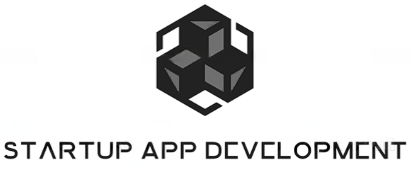In the dynamic world of startups, finding the right developer can set the trajectory for your business success. As you navigate the tech landscape, it’s crucial to identify key skills that define an impactful developer. Let’s explore the blend of technical expertise and soft skills needed to thrive in a startup environment.
1. Technical Proficiency and Programming Languages
A strong grasp of various programming languages is essential. Your developer should be well-versed in languages like JavaScript, Python, or Ruby to build robust applications. Mastery of programming languages allows developers to deliver solutions that are not only effective but also efficient in terms of performance and resource utilization. Moreover, understanding technical skills like Data Structures and Algorithms provides a competitive edge, allowing developers to create optimized code, integral for startups aiming to scale quickly.
In an industry that continually evolves, being up-to-date with the latest programming trends ensures your developers are using the best possible tools and practices. This proficiency is not just about knowing a language but understanding its frameworks and libraries, which boosts the speed of development and deploys products in a timely fashion—critical for startups.
2. Problem-Solving Abilities and Critical Thinking
Startups often present unique challenges, requiring developers to think on their feet and solve complex problems creatively and efficiently. Analytical skills are essential in understanding problems at a deeper level, identifying underlying issues rather than just their symptoms. In a startup, where resources may be limited, the ability to devise innovative solutions becomes invaluable, often differentiating successful ventures from those that falter.
Critical thinkers in the software industry don’t just solve problems; they anticipate them. Having an entrepreneurial mindset where business needs drive development ensures that the solutions a developer provides align with the company’s goals and visions. This skill is at the heart of a developer’s toolkit, making them a vital asset to any startup.
3. Adaptability and Eagerness to Learn
With technology constantly evolving, a great developer should remain adaptable and be eager to learn new tools and technologies to keep your startup at the forefront. This adaptability is crucial because it ensures the development process remains agile, allowing your startup to pivot swiftly and capitalize on new opportunities. Furthermore, having developers who embrace continuous learning ensures that your company can stay competitive in an ever-evolving tech landscape.
4. Effective Communication and Team Collaboration
In a startup, clear communication is key. A developer must collaborate efficiently with team members to turn visions into reality. The ability to explain complex technical concepts in a way that non-technical team members can understand is invaluable. This skill ensures that all stakeholders are aligned and that the project moves forward smoothly. Whether it’s running agile meetings or casual brainstorming sessions, a developer’s communication abilities enhance teamwork and foster a collaborative atmosphere.
An additional layer to effective communication is the developer’s role in mentoring and guiding junior staff. By translating their knowledge into actionable insights, they help cultivate an environment of continuous improvement. As your startup grows, this mentorship can lead to a more skilled and cohesive team, propelling the startup forward.
5. Understanding of User Experience and Interface Design
A keen eye for design and understanding user needs ensures that the software developed is both functional and user-friendly. This understanding melds creativity with practicality, creating intuitive interfaces that enhance the user’s journey through your application. The ability to integrate technical prowess with a deep understanding of user experience (UX) sets apart developers who merely code from those who create compelling user journeys. This design-centric approach is crucial when aiming to differentiate your product in a crowded market.
6. Project Management and Organizational Skills
Developers should be able to manage their time well and juggle multiple projects efficiently, ensuring that deadlines are met and quality is maintained. Effective project management skills ensure that tasks are prioritized correctly and resources are allocated efficiently. More than just keeping projects on track, it’s about foreseeing potential bottlenecks and resolving them proactively. In a startup environment where every decision can have far-reaching effects, agile methodologies and efficient management practices streamline processes, optimizing workflow and productivity.
7. Fostering a Growth Mindset and Resilience
Startups are filled with highs and lows. A developer with a growth mindset remains resilient in the face of challenges and is continually seeking improvement. This mindset fuels a passion for learning and self-improvement, inspiring others in the team and fostering a culture of innovation. Embracing a growth-centered approach not only benefits the developer but also the entire startup, as it encourages the team to embrace challenges as opportunities for growth and learning.


